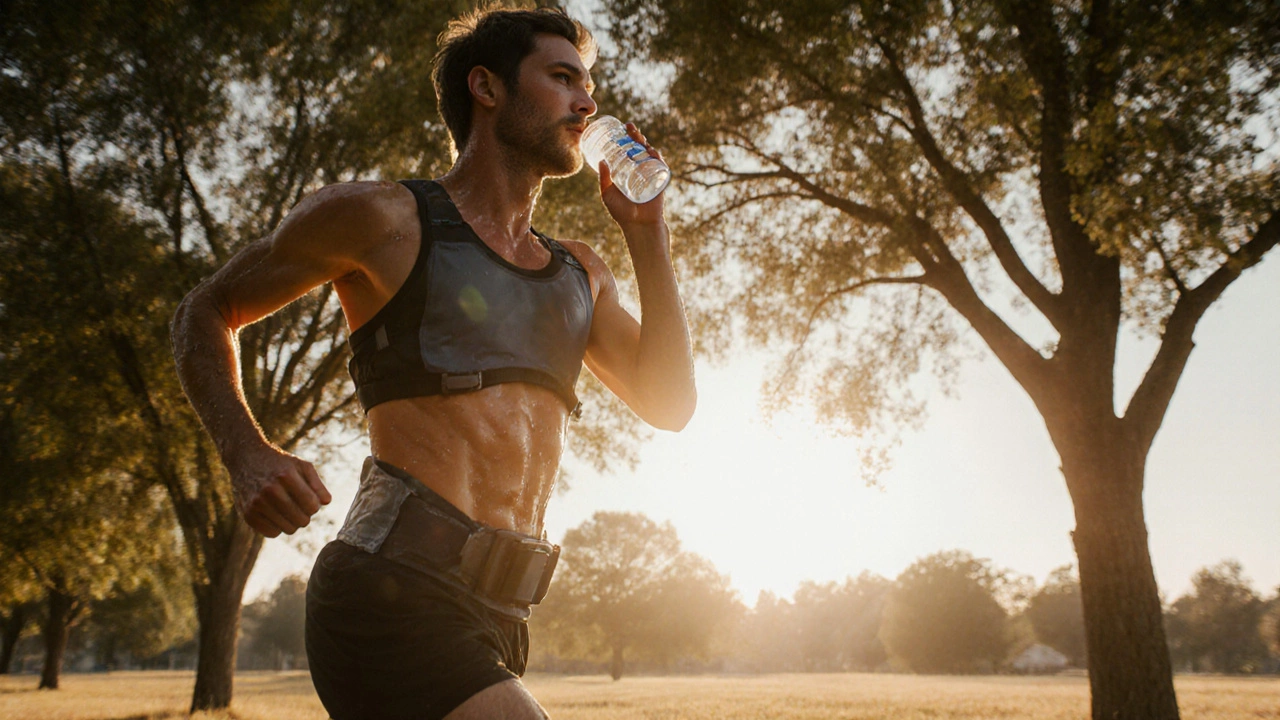When you're out running, your body loses fluids fast—especially in heat or humidity. Hydration during running, the practice of replacing fluids lost through sweat to maintain performance and prevent health risks. Also known as fluid balance for runners, it’s not just about drinking water—it’s about timing, quantity, and what you’re drinking. Skip it, and you risk cramps, dizziness, or worse. Drink too much, and you can dilute your blood sodium, leading to hyponatremia. It’s a tight line, and most runners get it wrong.
What you need depends on how hard you run, how long, and the weather. A 30-minute jog in cool weather? Water is fine. A 10K in 25°C heat? You need more than water. Electrolytes for runners, minerals like sodium, potassium, and magnesium lost in sweat that help nerve and muscle function become critical after 45 minutes. That’s why sports drinks or electrolyte tablets matter—not as a gimmick, but as a tool. And don’t wait until you’re thirsty. By then, you’re already 2% dehydrated, which slows you down. Start sipping early, sip often.
Signs you’re not hydrating right? Dry mouth, dark yellow urine, headache, or feeling unusually tired mid-run. These aren’t just "feeling off"—they’re your body screaming for help. One runner we spoke to kept pushing through fatigue on long runs until she checked her urine color and realized it looked like cola. She started drinking 150ml every 20 minutes, and her times dropped by 90 seconds per mile. Simple fix. Big difference.
There’s no magic number like "drink 8 glasses a day." Runners need to think differently. Your sweat rate matters more than the calendar. Weigh yourself before and after a run. For every kilogram lost, drink about 1.5 liters over the next few hours. That’s the real math. And if you’re running in the morning? You’re starting dehydrated after hours without water. A small glass before you head out makes a real difference.
Hydration isn’t just about water bottles and gels. It’s about your daily habits too. If you’re consistently low on fluids outside of runs, you’ll never catch up during training. Your body isn’t a tank you fill right before a workout—it’s a system that needs steady input. Eat water-rich foods like cucumbers, oranges, and yogurt. Cut back on coffee and alcohol on heavy training days. These aren’t optional extras—they’re part of your running routine.
What you’ll find below are real, tested tips from runners who’ve learned the hard way. From what to drink on long runs to how to tell if you’re overdoing it, these posts cut through the noise. No fluff. No myths. Just what works.

Drinking water while running isn't optional-it's critical for performance and safety. Learn how much, when, and what to drink based on distance, heat, and sweat rate.
READ